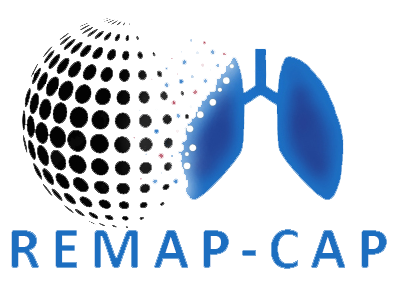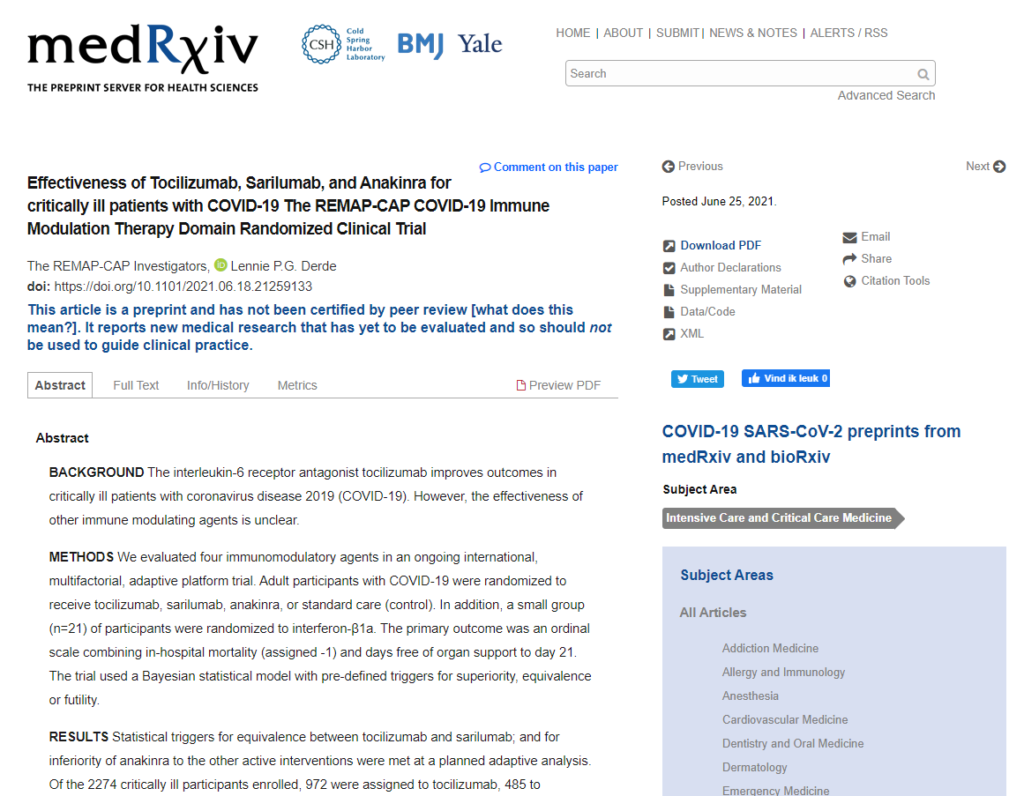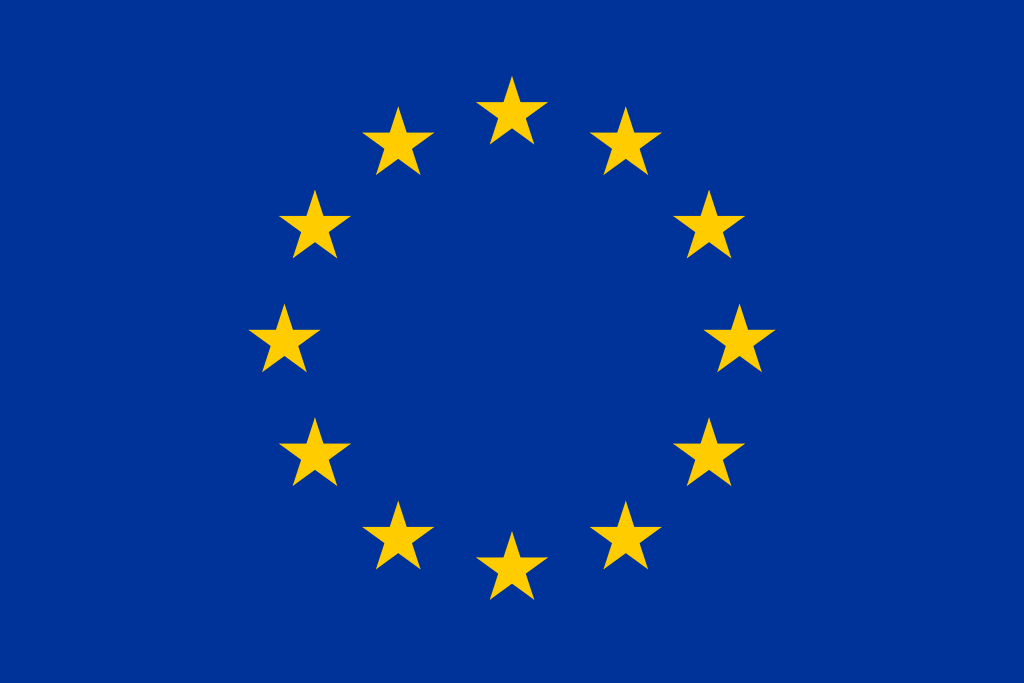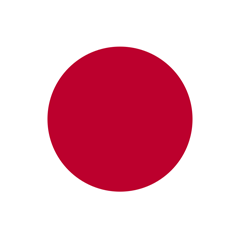BACKGROUND The interleukin-6 receptor antagonist tocilizumab improves outcomes in critically ill patients with coronavirus disease 2019 (COVID-19). However, the effectiveness of other immune modulating agents is unclear.
METHODS We evaluated four immunomodulatory agents in an ongoing international, multifactorial, adaptive platform trial. Adult participants with COVID-19 were randomized to receive tocilizumab, sarilumab, anakinra, or standard care (control). In addition, a small group (n=21) of participants were randomized to interferon-β1a. The primary outcome was an ordinal scale combining in-hospital mortality (assigned -1) and days free of organ support to day 21. The trial used a Bayesian statistical model with pre-defined triggers for superiority, equivalence or futility.
RESULTS Statistical triggers for equivalence between tocilizumab and sarilumab; and for inferiority of anakinra to the other active interventions were met at a planned adaptive analysis. Of the 2274 critically ill participants enrolled, 972 were assigned to tocilizumab, 485 to sarilumab, 378 to anakinra and 418 to control. Median organ support-free days were 7 (interquartile range [IQR] –1, 16), 9 (IQR –1, 17), 0 (IQR –1, 15) and 0 (IQR –1, 15) for tocilizumab, sarilumab, anakinra and control, respectively. Median adjusted odds ratios were 1.46 (95%CrI 1.13, 1.87), 1.50 (95%CrI 1.13, 2.00), and 0.99 (95%CrI 0.74, 1.35) for tocilizumab, sarilumab and anakinra, yielding 99.8%, 99.8% and 46.6% posterior probabilities of superiority, respectively, compared to control. Median adjusted odds ratios for hospital survival were 1.42 (95%CrI 1.05,1.93), 1.51 (95%CrI 1.06, 2.20) and 0.97 (95%CrI 0.66, 1.40) for tocilizumab, sarilumab and anakinra respectively, compared to control, yielding 98.8%, 98.8% and 43.6% posterior probabilities of superiority, respectively, compared to control. All treatments appeared safe.







